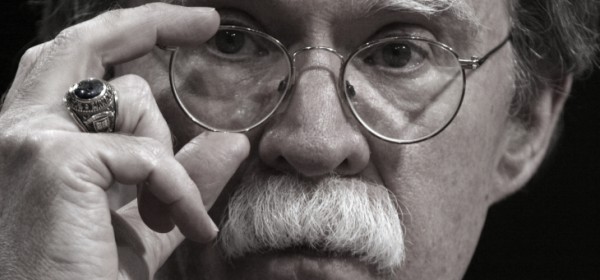The deeply underdeveloped worldview of John Bolton
Survey the history of American national-security advisors going back to the position’s creation in the mid-twentieth century, and two things about John Bolton stand out. The first is his militancy: his incessant, almost casual, advocacy of war. The second—which has gotten less attention but is deeply intertwined with the first—is the parochialism of his life experience.
Many national-security advisors, including Robert McFarlane, John Poindexter, Colin Powell, James Jones, Michael Flynn, and H.R. McMaster, have come from the professional military. Even many of those who made their careers in academia, law, or government, like McGeorge Bundy, Henry Kissinger, Frank Carlucci, Brent Scowcroft, and Stephen Hadley, served in the military for a time. Walt Rostow, Kissinger, Zbigniew Brzezinski, Scowcroft, Anthony Lake, Condoleezza Rice, Susan Rice, and McMaster, earned doctorates. In different ways, these experiences offered Bolton’s predecessors some critical distance on the foreign-policy debate in Washington.
To differing degrees, those who served in the military saw the consequences of those foreign-policy debates on the ground. Some were more hawkish than others. But many could relate to the experience of Colin Powell who, as a major in Vietnam, saw “recently healthy young American boys, now stacked like cordwood” on the floor of helicopters. Those who served in academia had an opportunity to put U.S. foreign policy in broader historical perspective. Kissinger, who wrote his dissertation on Klemens Von Metternich, the foreign minister of the Austro-Hungarian empire who tried to manage Europe’s balance of power in the face of a challenge from revolutionary France, saw America as facing an analogous challenge from a revolutionary Soviet Union.
Of course, neither military nor academic experience could prevent some national-security advisors from making terrible mistakes. But if Kissinger is right that “[high] office teaches decision-making, not substance” and that it “consumes intellectual capital; it does not create it,” then the narrow professional experience through which Bolton has amassed his intellectual capital matters a great deal. He has never served in the military. He has never studied another region of the world, or another period of history, at the graduate level. He has spent his entire adult life in the interlocking world of hawkish think tanks, Washington law firms, Republican politics, and the right-wing media. And he manifests that narrowness in the smugly insular worldview he brings to his new job. [Continue reading…]
Don’t miss the latest posts at Attention to the Unseen: Sign up for email updates.
